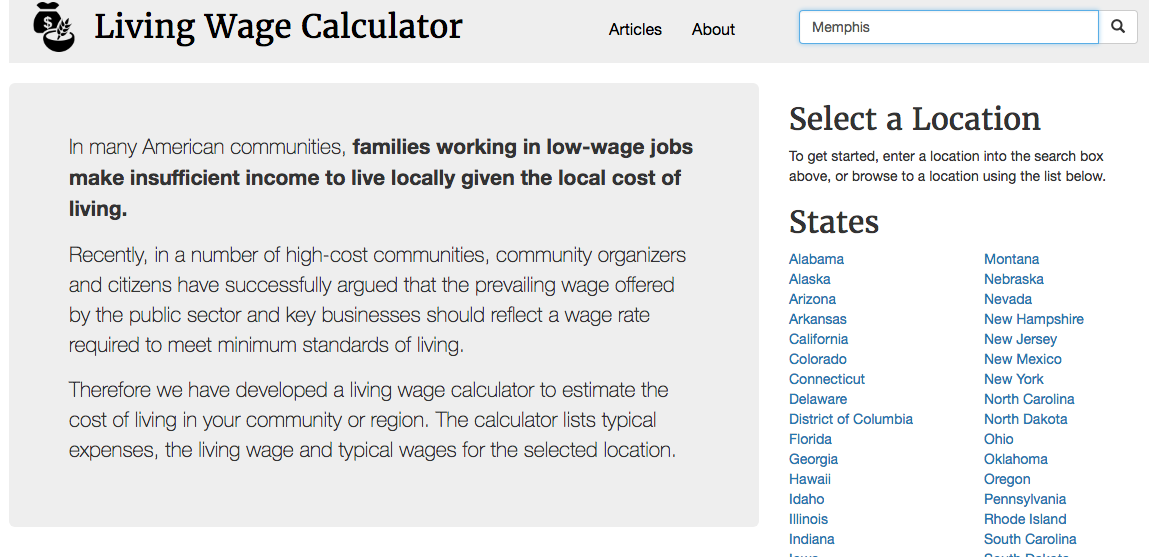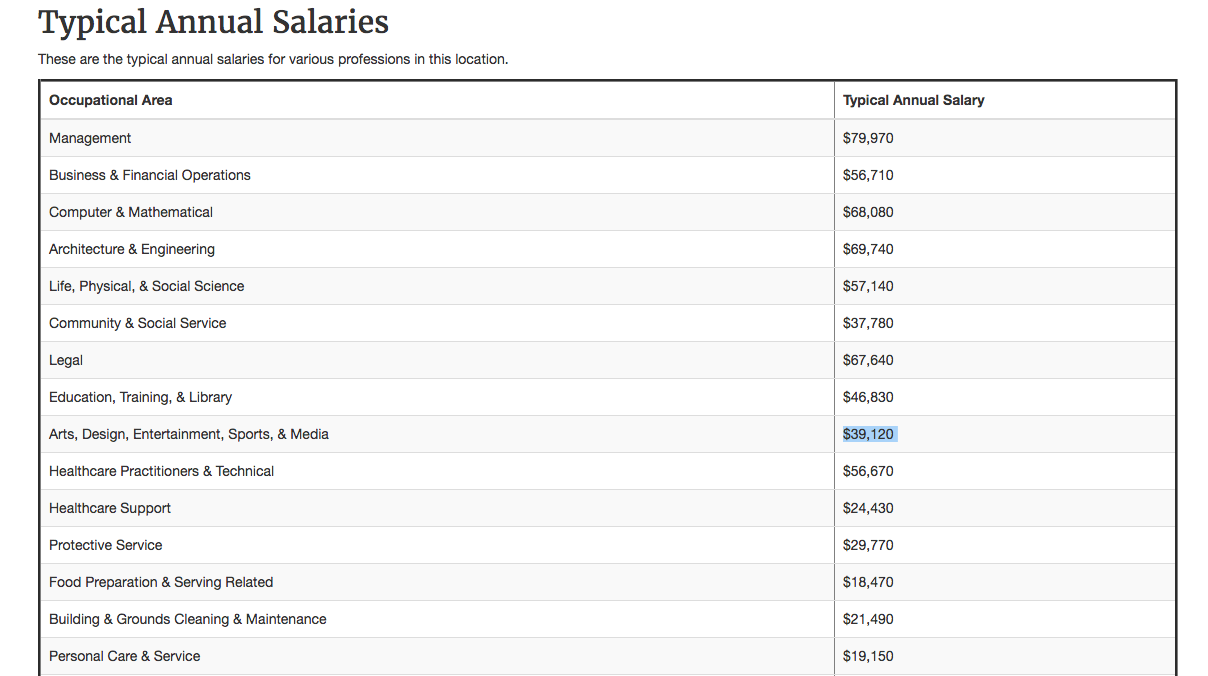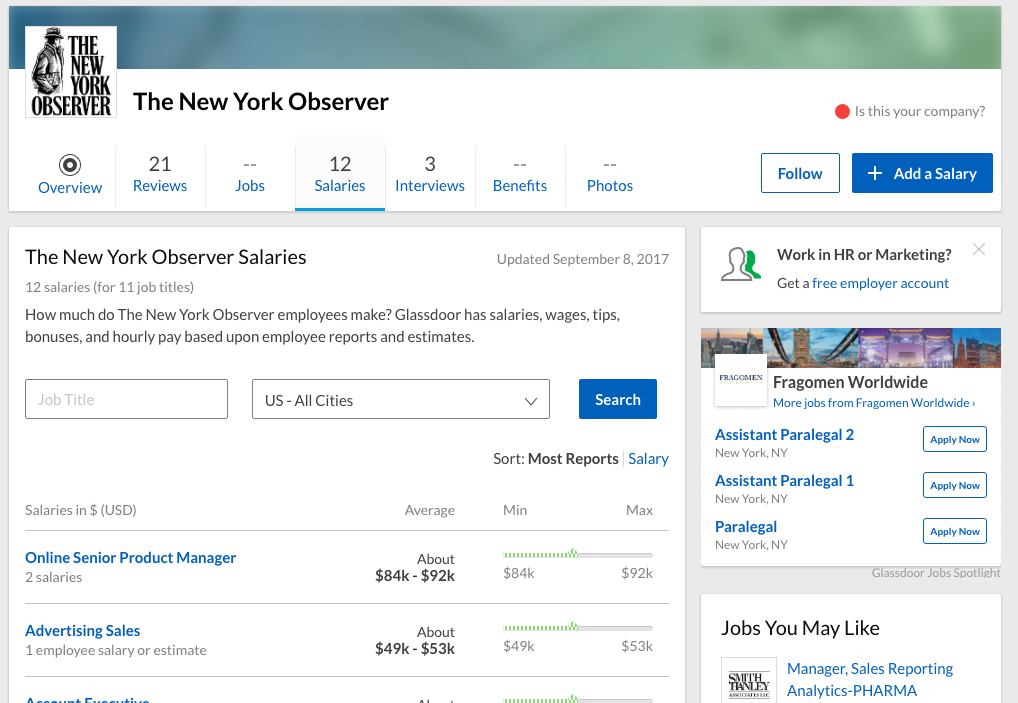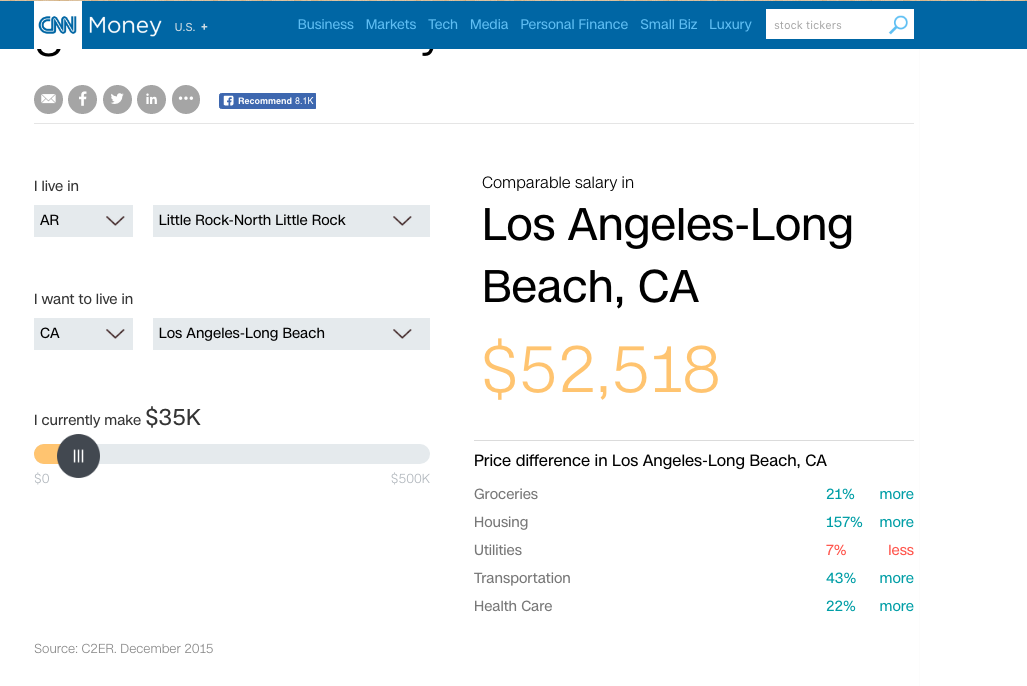
Years after I landed my first journalism job, my mentor shared some advice that I couldn’t use. Now, I’m sharing it with you.
If you’re a recent graduate who has been offered a job, please know that you don’t have to take whatever salary they offer initially. You can – and should – negotiate your salary just like veteran journalists. It will take some bravery to speak up and ask for more, but it’ll be worth it when your first paycheck hits your bank account.
Let’s spend the rest of this post breaking down how to negotiate your salary.
Step 1: Determine your price range
In this step, you have to set a dollar amount range for your salary. In other words, you have to say to yourself: “I’ll take this job as long as they agree to pay me between $XX,XXX and $XX,XXX.” This number range will differ depending on several factors including but not limited to what city you’ll be working in, what company you’ll be working for, what position they’re hiring you for and what your level of educational attainment is. The range needs to be higher in crowded media markets like New York City, Los Angeles, Chicago, and Washington D.C. Still, there is no default number range. You must set your own worth – within reason obviously.
So how does one determine their price range? You don’t just pull numbers from the sky. If you use three websites in particular, you can get a pretty decent price range. First, visit the Living Wage Calculator from Massachusetts Institute of Technology. On this site, you can see what people in any given city/metro area are making in specific job industries. To navigate this site, type in the city where you’ll be working. For example, we’ll punch in Memphis, Tennessee.

From there, a second screen will pop up. Scroll down past the first two boxes until you get to Typical Annual Salaries. In that box, you’ll see what people in Memphis make per year, depending on what industry they’re in. As you can see below, people in the media industry in Memphis make just above $39,000.

Having the number $39,120, you realize that a potential employer in Memphis would need to pay you at least that amount.
Secondly, you can visit Glassdoor.com. Glassdoor will sometimes tell you what current and past employees of specific companies made in salary. For this site, type in the company name, the city you’ll be working in and then drop the menu down to salaries (not jobs, interviews, or companies). We’ll use the New York Observer as an example.
After completely the search bar, below is what pops up.

As you can see, there are 12 salaries that current or former New York Observer employees reported to Glassdoor. You can scroll down and see the rest of the results, including an entry for the senior political writer. Glassdoor has many media organizations and hundreds of salaries. Type in the company you’ll thinking of working for and see if someone with your job title has reported a salary.

Finally, there’s one more site that will help you determine your price range. Visit CNN Money’s Cost of Living calculator. On this site, you can share how much you make now in your current city and the site will share how much you need to make in a new city in order to have the same quality of life.
Navigating the site is simple. Use the drop down menu to tell the site where you live now. Then, tell the site where you’re looking to live. Finally, drag the cursor to the approximate amount you make now. Just as an example, I told the site that I make $35,000 a year and live in Little Rock, Arkansas, but I want to move to Los Angeles.

Turns out, I’m going to need more than $52,000 a year to enjoy the same quality of life in Southern California.
In conclusion, between MIT, CNN Money and Glassdoor, you’ll get a sense of how much you need to make in your new city/ new job. From there, you can make a price range.
If you’ve determined that range, check out my next blog post on how to negotiate your first journalism job salary.